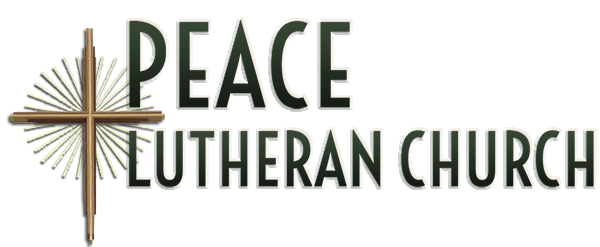God asks, What sacrifice will it take?
Martin Luther, the man whose name is the root of our denominational identity, summed up the mysterious dilemma of our relationship to our creator by declaring that human beings are both “sinner” and “saint.” Not that we bounce back and forth between the two, but that we are both at the same time.
“Sinner” in that very part of our being that keeps us believing in our own abilities, holding on to desires, doubts and fears that prevent us from giving ourselves up completely to God; and “saint” because God claims us as children and heirs of the kingdom even when we are prodigal wanderers who resist coming home until we finally realize there is nowhere else to go.
With thanks to Pastor Paul Nuechterlein, a retired Lutheran pastor, for some intriguing insights about the sinner/saint struggle in the parable from this morning’s gospel, let’s take a look at it in a not-quite traditional way.
It seems pretty obvious, since it’s Jesus telling this parable a few days before his own death, that he is the “son” being referred to who is killed. Jesus dying for our sake is such a central piece of our faith, that I wonder, sometimes, if we often skip over the astounding power of the love that fueled that sacrifice.
Have you ever really wondered why it took the cross to save us? Why did God have to give up his Son to death on a cross in order to save us? I do.
Why not send an army of angels, for instance? If you or I were planning this campaign of salvation, what would we come up with? Wouldn’t it be something more like that army of angels?
God’s conversation with Jesus
Pastor Nuechterlein suggested that if we could have been privy to the council between God the Father and God the Son, perhaps it might have gone something like this:
God the Father says: “You know, all I’ve ever really asked from my earthly children is that they take care of my vineyard, my Creation, with steadfast love and care. And ever since that first man and woman, who listened to that darned serpent, they’ve gotten it wrong. They think they own the thing themselves, and try to make me happy with these pitiful little offerings. So I’ve sent my prophets to tell them again.
Isaiah told my people:
What to me is the multitude of your sacrifices? says the LORD; I have had enough of burnt offerings of rams and the fat of fed beasts. When you come to appear before me, I will not listen; your hands are full of blood. Wash yourselves; make yourselves clean; remove the evil of your doings from before my eyes; cease to do evil, learn to do good; seek justice, rescue the oppressed, defend the orphan, plead for the widow. –Isaiah 1:11-17
And Amos said:
I hate, I despise your festivals, and I take no delight in your solemn assemblies. Even though you offer me your burnt offerings and grain offerings, I will not accept them. But let justice roll down like waters, and righteousness like an ever-flowing stream. –Amos 5:21-24
Micah asked my children:
“With what shall I come before the LORD, and bow myself before God on high? Shall I come before him with burnt offerings, with calves a year old? Will the LORD be pleased with thousands of rams? Shall I give my firstborn for my transgression?” The Lord has told you, O mortal, what is good. And what does the LORD require of you: but to do justice, and to love kindness, and to walk humbly with your God? –Micah 6:6-8
And Hosea:
Ah, my prophet who didn’t mince words – he was most direct of all:
For I desire steadfast love and not sacrifice, the knowledge of God rather than burnt offerings. –Hosea 6:6
Yes, my Son, I sent the prophets to tell them. And all they did was persecute them and even kill them. Now, I’m afraid that I’m going to have to send you.” And the Son responded, “Yes, I’ll go.”
Old sacrifice and new
In this Parable of the Wicked Tenants that we have before us today, it may be that Jesus is giving us precisely such a glimpse at what God has done in carrying out our salvation. God sent the prophets, and then God sent his Son. And Jesus worked diligently to give us the same message as the prophets. Twice in Matthew’s Gospel, Jesus directly quotes Hosea’s version of that message:
Go and learn what this means, ‘I desire mercy, not sacrifice.’ –Matthew 9:13; 12:7
Have we yet learned what this means? Because There’s often confusion for us about what “sacrifice” actually means.
Remember the story of Solomon? Two women come to him, both claiming the same infant. The woman who is lying, is willing to accept the idea of cutting the child in two; though that will mean sacrificing the child, she can at least be sure the other woman will not get what she desires.
That’s the old kind of sacrifice, a willingness to spill someone’s blood in order to keep the peace. But the one who was truly the child’s mother shows us the other kind of sacrifice, self-sacrifice. She was willing to give up her baby to the other woman, in order that it would be spared. Solomon was wise enough to know the difference between these two kinds of sacrifice: the old kind that is willing to sacrifice someone else, most often the weakest among us, and the kind of sacrifice that Jesus embraced: self-sacrifice.
On the cross, Jesus took that old kind of sacrifice – because that’s exactly what they were doing to him, spilling his blood to help keep the peace – and Jesus turned into something else, self-sacrifice, a way of embracing others with steadfast love and mercy, a way of being that pays the most attention to those who are usually the victims of the old sacrifice, the weakest among us.
‘We’ve left that old kind of sacrifice behind long ago,’ we might say. Well, have we really?
In this parable, the one thing that inspires the violence directed against the landowner’s servants and then his son, is the desire of the workers to claim ownership of the vineyard; a vineyard to which they had absolutely no valid claim of ownership.
Jesus was telling this parable in the hearing of the religious leadership who believed they could claim ownership of and power over God’s people.
How much of the suffering in our world has been caused by the human tendency to claim for ourselves the riches of creation that rightfully belong to God? To use what we have claimed to fill our own wants and desires, often telling ourselves that we have earned them and deserve them?
How much suffering caused because we don’t acknowledge God’s ownership of everything and use the fruits of creation in the ways God asks of us?
One more thing to notice: the only ones who suggest violence in this parable are the people. When Jesus asks what they think the landowner will do to the greedy workers, they suggest a violent death.
Jesus’ own response is that the kingdom will be taken away from those who try to wrongfully seize it, and given to those who are willing to work on the owner’s behalf to produce a bountiful harvest.
The “sinner” in each of us struggles with the desire to claim as our own things that rightly belong to God. The glimmer of the “saint,” the child of God shines through at the table where we come, knowing that while we are not worthy, we are gladly forgiven and welcomed.
May the feast of grace and love offered here strengthen us toward a deeper understanding of God’s ownership of all of creation, and our calling to be faithful servants, who work to bring in the harvest of justice, mercy and peace that God desires.
–Pr. Eileen


